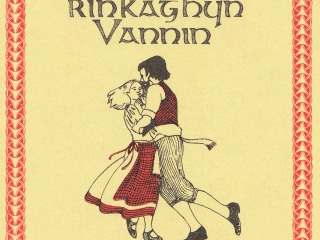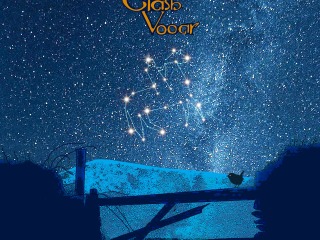MENU
01 Oct 2011
The principal manuscript source that A.W. Moore drew on in Manx Ballads and Music (1896) was one gathered together by Robert Gawne. Fourteen songs appeared from his collection, namely—“Arrane ny Paitchyn,” “Berry Dhone,” “Yn Dooinney Boght,” “Er Genny Thombaghey,” “Fer Dy Clein Click,” “Irree Seose,” “Isabel Foalsey,” “Marish ny Fiddleryn,” “Moir as Inneen,” “My Henn Ghooinney Mie,” “Nancy Sooill-Ghoo,” “Nelly Veen,” “Quoifyn Lieen Vooar,” and “Skeeylley Breeshey.” Of the person we know little, other than he was born at the Rowany in Port Erin, according to Moore; frustratingly, he simply cannot be found in the Island’s records. We do know, however, that his collection was at one times in the hands of William Harrison and, furthermore, that it was formed early on. Harrison in his commentary on “Shenn Arrane Ghaelgagh er Mylecharane,” published in Mona Miscellany in 1869, when writing about other versions of the song mentioned that “I have one by Mr Robert Gawne of Douglas in 1837, with some slight alterations, containing nine verses […].” This also shows that the Robert Gawne Collection did not appear in full in MBM. It also pushes the dating of some or maybe all of his collecting back, remarkably, into the 1830s. Moore, likely, obtained the collection on Harrison’s death in 1884. Of interest here is the material from the Gawne Collection that did not appear in MBM. Gawne collected songs that were deemed to be bawdy or erotic by Moore (and for that matter were indeed so…)—for example, “‘Bride Parish,’ [‘Skeeylley Breeshey’] is given for the sake of the music, the adventures of the party referred to being described in the rest of the ballad in language too coarse for publication.” Moore in a footnote to MBM refers to some of the titles of these (eight) songs under the heading of “erotic ballads” and they are: “Ail moor, ail moor mullagh ny chrink,” “Ayns earish Cromwell,” “Dy bovms as berchys moan,” “Moghrey den venainshter, “Qulliam Baugh,” “Traa va mee ghuilley beg aalin as reagh,” “Va mee baghyn kewt soorey, “Walk mee magh morrey Laa Bauldyn.” They are better known as “Illiam Boght” (‘Poor William’) or “Quilliam Boght” (‘Poor Quilliam’); “Dy beign’s ayns berchys mooar” (‘If I were in great wealth’); “Moghrey da’n Venainshter” (‘(Good) morning to the mistress’); “Tra va mee [my] ghilley beg aalin as reagh” (‘When I was a young lad good-looking and randy’) “Va mee ?laghyn ceaut sooree” (‘I was days spent courting’) “Aile mooar, aile mooar mullagh y chrink /ny crink” (‘A big fi re, a big fi re on the top of the hill / the hills’) “Walk [Hiooill] mee magh moghrey Laa Boaldyn” (‘I walked out May Day morning’) “Ayns earish C[h]romwell” (‘In the time of Cromwell’). [I am grateful here to Prof. George Broderick for the translations.] Though thought bawdy or erotic at the time and so to be censored, they probably would not raise an eyebrow today such is the change in tastes but they nevertheless show that a collector such as Robert Gawne was willing and able to record such material; also that such songs were part of the traditional repertoire. But how widespread was such bawdy or erotic material? Remarkably, Moore had initially intended to publish some or all of this material from the Edward Gawne Collection. The Rev. T.E. Brown wrote to him on 19 February 1896, while working on the preface to MBM, “I have none of the Love songs (indecent), which I think you intend publishing in Manx only.” Brown had seemingly canvassed Dr John Clague over such a plan of publication: According to Dr Clague these are almost all horribly indecent. He says that one verse, or, at the utmost, two, may be tolerated, but invariably the rest is absolute dirt. Moreover he declares that these songs are exceedingly numerous. Moore’s reply to Brown is lost, but in response to his letter Brown wrote, “It is gratifying to think that you have reason for mistrusting Dr Clague’s estimate of Manx Love Songs.” In any case, the material did not appear in MBM. Nevertheless, it is interesting to note that Moore was seemingly able to assume that his audience would be familiar both with the material and titles of this material, and further that Clague himself was aware that such songs were widespread. Hopefully, one day these songs will be restored to the repertoire of Manx traditional song and sung once again (and with vigour).
by Stephen Miller

Rinkaghyn Vannin – Manx dance book and cassette released online
19 Apr 2024
Read More...
North American Manx Association 2024 nominations invited
16 Apr 2024
Read More...
New album from Clash Vooar
05 Apr 2024
Read More...
Contact, Links, Acknowledgements, Privacy
© Culture Vannin. Culture Vannin is the trading name for the Manx Heritage Foundation, registered charity 333 in the Isle of Man. Designed by 3 Legs Ltd.